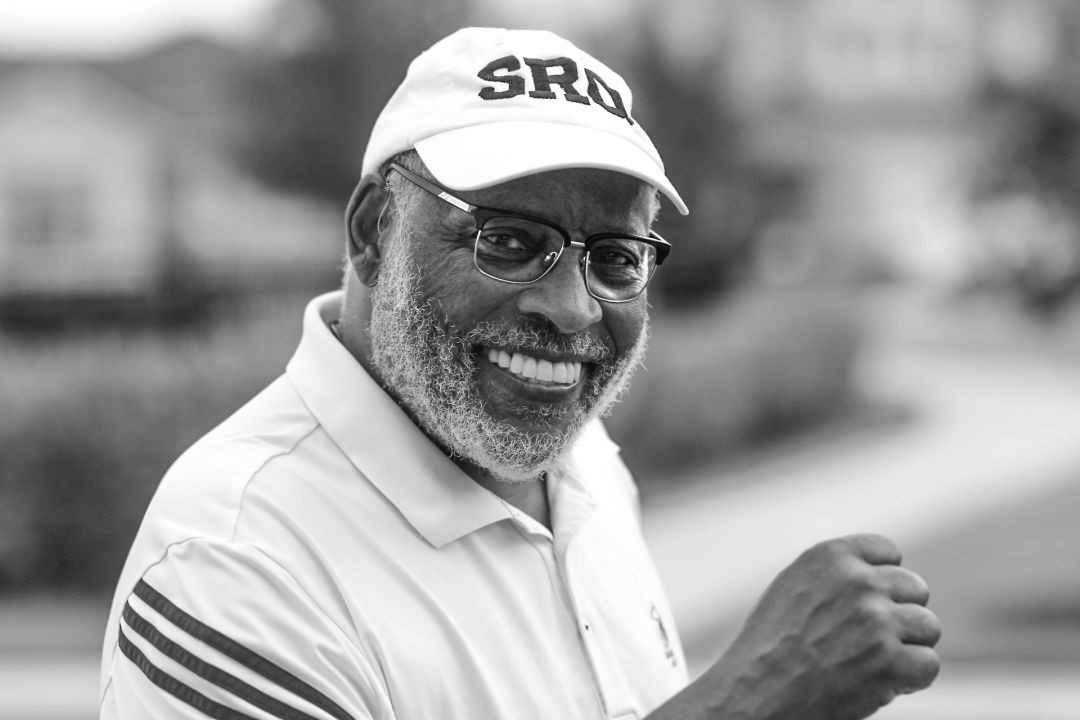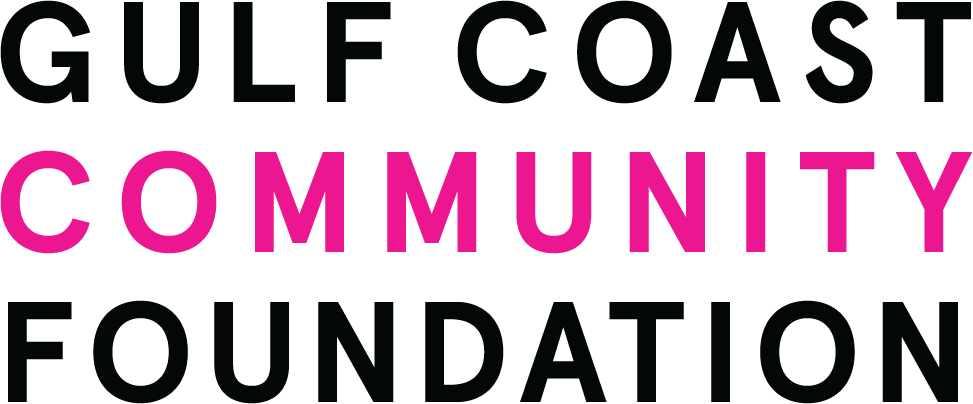Media Executive George Miles on Career Pivots, Doo-wop and the Need for Black People in the Newsroom
This article is part of the series Listening to Diverse Voices, proudly presented by Gulf Coast Community Foundation.

George Miles
Image: Janet Taylor Brown
Despite being called a "servant leader" by his peers, media executive and certified public accountant George L. Miles Jr. was also told he wasn't "college material" at an early age. He proved his doubters wrong, becoming the first in his family to graduate college with a bachelor’s degree from Seton Hall University in 1963, followed by an M.B.A. from Fairleigh Dickinson University in 1970. On the first day of Miles’ first job after college at the Department of Defense in New Jersey, his grandmother asked him to come by her home because she wanted to see the first person in the family to wear a tie to work.
In 1969, Miles took a managerial job in New York City at accounting firm Touche Ross and Company—the company's first Black hire. Later, he pivoted to the broadcasting business as manager and controller at KDKA-TV in Pittsburgh. He then joined WBZ-TV as station manager in Boston and, in 1983, served as chief administrative officer for National Public Radio (NPR), where he was called in to repair fiscal issues—a trait he quickly became known for, earning the nickname "the turnaround guy."
Between 1984-1994, Miles was executive vice-president and CEO of WNET/13 in New York, then was appointed president and CEO of WQED multimedia back in Pittsburgh, the producing station for the beloved Mister Rogers' Neighborhood. Under his leadership, the WQED team won a number of Emmys and other broadcasting awards.
Miles also sat on many corporate boards, including Chester Engineers, Harley-Davidson, WESCO International and AIG. He's received numerous accolades, including Farleigh Dickinson University’s Pinnacle Award for Outstanding Achievement as an alumnus, Seton Hall University’s Most Distinguished Alumnus award, and honorary doctorates from Robert Morris University, La Roche College and St. Joseph’s College. He was also named as one of the “Fifty Most Influential African Americans” by the New Pittsburgh Courier, one of the country’s oldest and most prestigious Black newspapers.
Today, at 80, Miles—who's also a Vietnam veteran—is an active member of the Boulé fraternity, a board trustee emeritus at the University of Pittsburgh, and a board member at Ringling College of Art & Design and WEDU. He and his wife of 56 years, Janet, moved to Sarasota in 2002 and now live here as full-time residents.
What was it like growing up in New Jersey?
“My father was raised in Orange and my mother was born in Georgia. Her mother and six siblings moved to New Jersey in the 1920s to escape the lynchings that were going on at that time.
“To this day, my brothers and I talk about the life-changing decision that my father made to change where we lived. We were living in a railroad shack in Orange, which had four bedrooms that were crowded with nine of us—seven kids and our two parents. My father moved us to a white housing project in Jersey, which was mixed with all sorts of people.
“That move was the foundation and formulation of many things that I drew on in my career. He could have moved us to more low-income housing, but he made a commitment to his family and he stood by what was best for us.
"My father’s father didn’t want anything to do with him from his childhood. So my father swore that if he ever had a family, that he would never do what his father did to him. When I think about it, I get emotional. He had his faults—we all do—but I have incredible respect for him. That’s why I call myself by my full name, to hold respect for my father."
Was your father the most influential person in your life?
“My father was influential for the whole family. He was strong-minded, a good provider, and he was always there for us. He taught us that when you hit a wall, you figure out how to get around it.
“When I first got out of college in 1963, I wanted to be a CPA. I applied to a lot of firms. But many told me straight away that they couldn’t have Black people looking in the books of [the companies they worked with] because those companies despised Blacks. So, I had to find a way around that wall.
“Ultimately, I rose to the highest of levels within large accounting firms. I draw on that experience when I am asked to be the chairman or a board member of companies like those. I make it clear that I want to be sure they have a diverse set of people. I do not want to hear that they cannot find Blacks to hire. I expect to see diversity, and it has paid off over the years. I encourage others on boards to have those same expectations—not just an intention.”
Tell us about your guiding principles.
“I am serious about what I do, but I don’t take myself seriously. However, I live by and embody these principles in everything that I do.
"Be prepared.
"Be patient. If you’re not patient, then you won’t get to where you want to go. There’s a proverb that says, ‘Wait upon the Lord and ye shall renew thy strength as patience.'
"Forgive. If you can’t forgive, then you will be in the same spot that you’ve always been. I’ve learned more about this than anything else in my life, and it has been my wife who has taught me the most about forgiveness
"Have vision. As the Bible says, ‘Where there is no vision, the people perish.’
"Learn from your mistakes. Don’t make the same mistake over and over. Learn from them and move on.
"Get out of your comfort zone. When you settle in and do the same things, you’re not going to move ahead.
"Be yourself. Don’t let others define you. You must define yourself. It’s not for others to tell you what you should or should not be doing.
"Enjoy the journey.
"Don’t forget your roots. That’s where you’re planted.
"Never give up.
"Laugh, cry and think—every day. In 1993, I heard Coach Jim Valvano say this on the ESPYs. It brought tears to my eyes then, and it still does now. I’ve been using it ever since.
"And for extra credit: always put yourself in a position to win.”
What was it like serving in Vietnam?
“When I boarded the ship in San Francisco, the Watts neighborhood was being rioted and burning down. As I said, I couldn’t get a job as a CPA, so I had to decide whether or not to go into the Army. I decided to serve, even though I could possibly have died for my country, because I had family and wanted to make sure that they were safe in America. I was the only Black in my unit of 13.
“I realize that white people can’t relate to what we had to do to survive. We go off to war for this country and for freedom, then we come home to segregation again, where we are spit upon. Yet, we still moved forward. It’s spiritual, it all comes from inside.”
As a former newsman, what do you feel are the gaps in reporting on the Black community?
“Media outlets need more Black people in the back room. It’s that simple. A Black person will get a news situation regarding the Black community and will explain it to their colleagues. That’s when an open dialogue leads to a good conversation on how to report it. But that goes beyond the newsroom. The only way you can understand is to open a conversation."
How did you put doo-wop back on America’s radar?
"Doo-wop was the music of my generation. I hired a young man named D.J. Lubinsky to be my pledge producer. He also happened to be the grandson of the president of Savoy Records. He knew everything about doo-wop, and he was only in his 20s.
"Lubinsky asked if we could try something different and produce a show called 'Doo-wop 50,' which we ran as a pledge program where we played music and asked for donations. The phone lines lit up like wildfire. I even got a congratulatory call from Jack Benza, the father of the popular show 'Great Performances.'"
"Typically, [these types of pledge shows] raised $15 million in four years from call-ins. We raised $20 million in one show. It became the highest-ranking fundraising program in PBS history. It’s still airing all over the country."
What would you like your white friends or acquaintances to be doing right now?
“All I want them to do is continue to be open minded. And I ask Black people to also be open-minded to what white people are saying to you.
“I’ve got to understand you, and you’ve got to understand me. That’s what this county needs—a dialogue, not a monologue. If not, we are never going to learn from one another.”
Listening to Black Voices is a series created by Heather Dunhill
